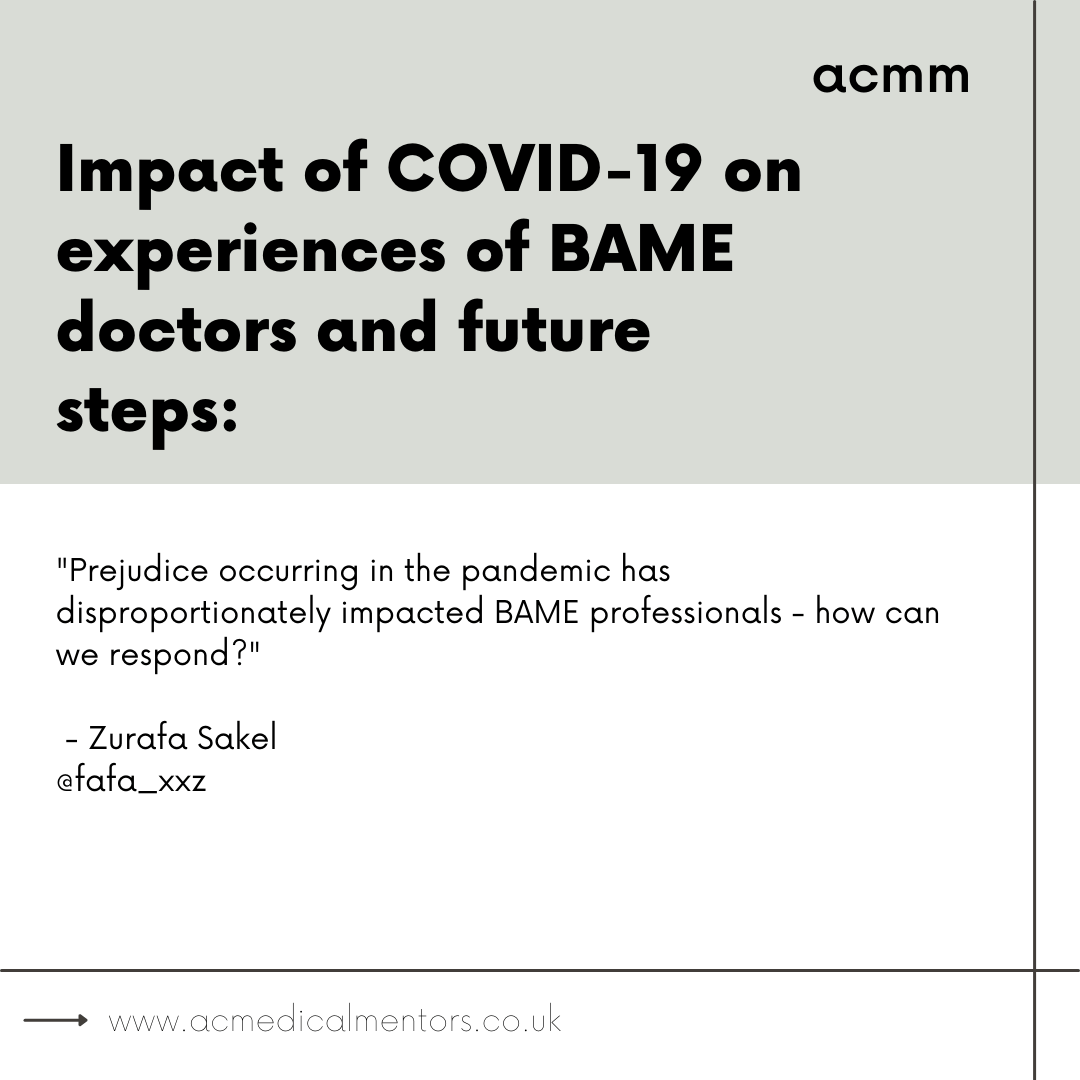Hot topics: the obesity crisis
- By Faith Otote. Edited by Elina Daitey.
- •
- 29 Jan, 2019
- •

The term ‘obese’ describes someone who is very overweight, with excess body fat. Low socio-economic status has been shown to be a predictor of obesity, as cheap and high-calorie food items – that are later stored as fat – are more readily obtainable. Obesity is a common problem in the UK, estimated to affect 25% of the adult population and 20% of children aged between 10 and 11. If current trends continue, the number of people diagnosed with morbid obesity in the UK is expected to double by 2035.
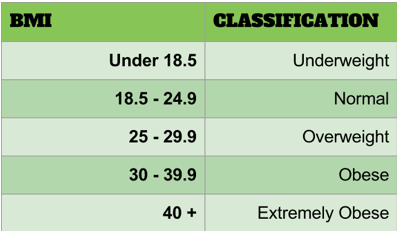
The most frequently used method of classifying an individual’s weight is body mass index (BMI) – a measure of whether an individual is a healthy weight for their height. For most adults, a BMI of 30 to 39.9 signifies obesity, whilst a BMI of 40 or above indicates morbid obesity. However, BMI is not used to definitively diagnose obesity; it is possible to have a high BMI due to muscle, not excess fat.
A better measure of excess fat is waist circumference. Generally, men with a waist circumference of ≥94cm (37in), and women with a waist circumference of ≥80cm (31.5in) have an increased likelihood of developing obesity-related health problems.
Such complications can initially affect an individual’s daily routine, for example one can feel increasingly breathless, tired and experience joint pain. Eventually, obesity can lead to more serious and potentially life-threatening conditions, such as type 2 diabetes, coronary heart disease and stroke. To add to this, quality of life and self-esteem can both worsen over time.

In attempt to address the increase in obesity, the government introduced a sugar tax on the soft drinks industry which came into effect in April 2018. Then, a £3.13 billion budget was announced for England’s public health initiatives in 2019, including weight management services and exercise support. Chief Medical Officer Prof Dame Sally Davies suggests that the government should implement further initiatives; she believes there should be a tax on foods high in sugar and salt and incentives to encourage more people to eat fruit and vegetables.
Ultimately, there is no quick method of reversing the
effects of obesity. Weight loss programmes take time and commitment. However,
even losing 3% of the original body weight can significantly reduce the risk of
developing severe health complications.
Post by Faith Otote
Edited by Elina Daitey.
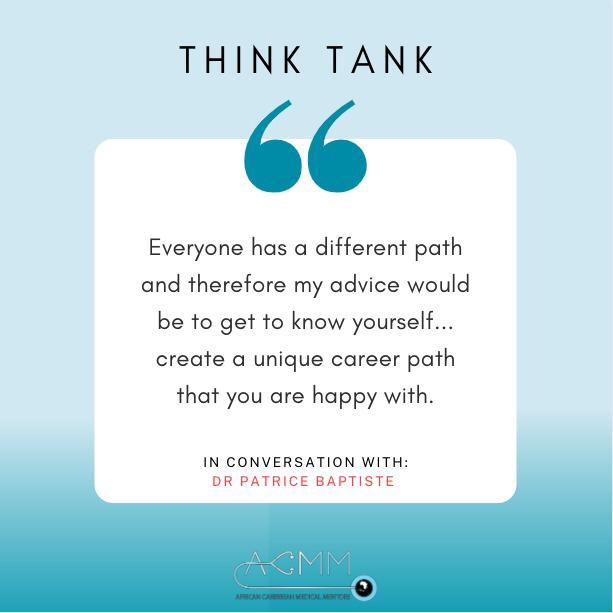
1) Introduction: About yourself and the career speciality you are in now?
I am a portfolio GP, medical educator, entrepreneur, writer, author, visionary and champion for diversity within the medical profession.
As a portfolio GP, I spend the majority of my time in clinical practice with the remainder of her time divided between a number of other careers and interests.
As a medical school examiner at Queen Mary University London I examine students during their practical or Objective Structured Clinical Examinations (OSCEs). I also works for the General Medical Council (GMC) examining doctors who have qualified abroad and wish to practice in the UK through my role as a PLAB (Professional and Linguistic Assessments Board) examiner.
Through my company, DreamSmartTutors, which launched during 2016, ( www.dreamsmarttutors.co.uk ) I support prospective medical students on their medical journeys whilst simultaneously aiming to increase diversity within the medical profession. As a STEM ambassador, I also aim to encourage school students to pursue Science, Technology, Engineering and Mathematics (STEM) subjects.
I am also a keynote speaker, having delivered a number of talks at places such as Oxford university, The British Medical Journal (BMJ) Live Careers fair and The Royal College of Physicians Edinburgh. As a freelance writer I have written for the British Medical Association (BMA), the BMJ, the Medical Protection Society (MPS) and the Support for Doctors Network to name but a few.
I regularly contribute to GP online ( www.gponline.com ) discussing important topics pertaining to General Practice and have published a short guide for those looking to understand a medical career in addition to this first of four poetry books. These can be found in the 'Publications' section on her profile below.
2) What is the most rewarding/most challenging aspect of your job?
I enjoy being able to establish and maintain a long term doctor patient relationship with my patients. This is very difficult to do when working in the hospital. I am also able to follow patients up and provide continuity of care. This enables me to provide a high standard of care for my patients.
3) What can medical students/ aspiring students do now to get to where you are now?
Everyone has a different path and therefore my advice would be to get to know yourself, your personality, what you enjoy and don't enjoy. This will enable you to create a unique career path that you are happy with.
4) What advice would you give your younger self ?
Don't worry so much. Often the things I worried about during my journey to becoming a doctor were so unimportant looking back and I can barely remember what the worries were about! If you find you are a worrier then ask yourself, whatever you are worrying about in the grand scheme of things does it really matter and will it matter/will you remember it in 5-10 years? If the answer is no, then try not to worry so much!
5) What inspires and motivates you to do the work you do?
I have always been an ambitious and highly motivated person. I enjoy learning new things and developing as a person.

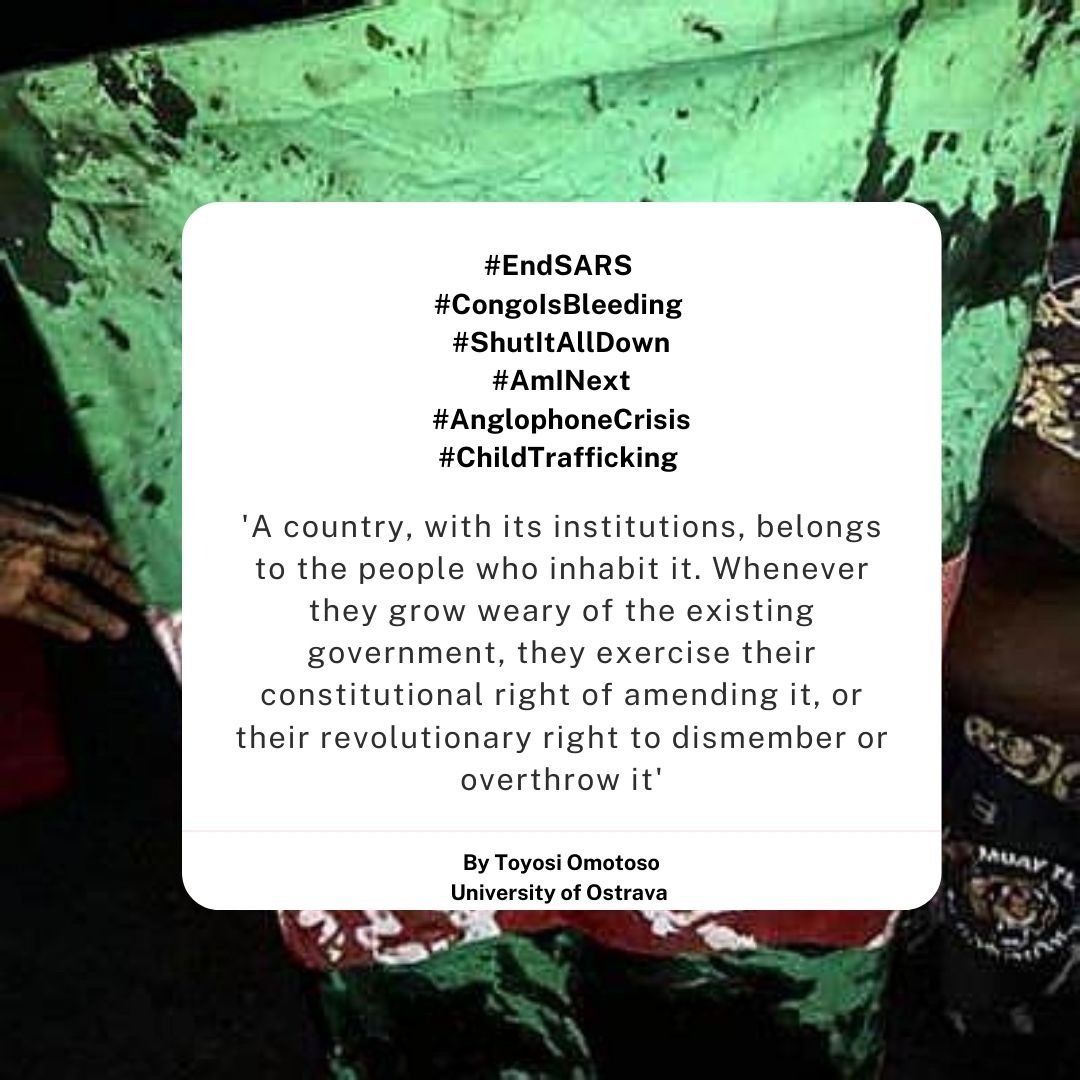
Growing up black comes with so much hardship, however, when faced with adversity, we are still able to rise and accomplish extraordinary things. With the resurgence of the BLM campaign alongside the protests happening in Africa, Black History Month is especially important this year, despite it being difficult to celebrate our success whilst enduring hardship. Africa is such a powerful continent with rich culture and resources and has so much to offer, but neo-colonialism and poor leadership have prevented it from its potential. In Nigeria, there are END SARS protests against brutality and oppression by the police. SARS Special Anti-Robbery Squad was created in the early ’90s to protect its people, yet over the years instead of protecting its citizens they have abused their position of power and murdered and tortured their people instead. People deserve to be able to live in peace and not live in constant fear. In Namibia, there are protests against sexual and gender-based violence and there's currently a holocaust going on in Congo. Ghana and the Ivory coast children are being trafficked, in Cameroon, there is the anglophone crisis and in South Africa, there is a rise in femicide. During the Black Lives Matter movement earlier on this year, we stood as one and our voices were being heard. We need to continue to use our voices and spread awareness for there to be change because all black matters matter everywhere.
These are devastating times and it can be so heart-breaking and overwhelming especially having to face it daily, the weight of this can be unbearable but it needs to be acknowledged. We cannot live fulfilling lives without overcoming the hurt and the anger.
Adversity as a black woman is nothing new; our hair, character and sexuality are constantly scrutinised but when it comes to our safety and the way we are treated people are not concerned in the slightest. This is deeply rooted in racism which is so covert nowadays we tend to ignore it and continue to carry the burden, but as Malcolm X said ‘The most disrespected person in America is the black woman. The most unprotected person in America is the black woman. The most neglected person in America is the black woman.’ Our pain and struggles continue to be overlooked and this is very much evident with the death of Breonna Taylor. Emphasising once again that every aspect of society is a reminder that racism and discrimination is very much alive, and it is going to take a collective effort to rid ourselves of centuries of hatred and prejudice. Her murder along with the countless innocent lives ruthlessly killed has once again shown us that black lives and especially black women are disposable, and we are invaluable and the very people that were put in place to protect her, are the ones who caused the most harm. Even in Nigeria the government, most importantly President Buhari has a duty to its people and to do right by them but rather than obliging the basic cry for help from the youth of their country they are governed by greed and corruption.
Black Pound Day (BPD) founded by Swiss; a member of So Solid Crew, started for the first time at the end of June and allows us to celebrate black-owned businesses and help circulate more money within our own economy, which in turn helps us to give back to our community. Maya Angelou said, ‘You may shoot me with your words, you may cut me with your eyes, you may kill me with your hatefulness, but still, like air, I’ll rise.’ BPD helps showcase smaller businesses and gives us a way of celebrating our culture and success.
GUAP media company has shown a new and innovative approach of displaying and promoting diverse individuals within the creative industry. Their magazine the Renaissance issue this year featured a prominent figure in the UK creative industry Nella Rose on the cover, which captured not only her beauty and showcased her talent and culture but highlighted the importance and influence she has within the community and despite the injustices we face we are still able to flourish.
Sharon Chuter of Uoma Cosmetics came out with a Pull Up for Change initiative, which helps give economic opportunities to black people. The aim of her campaign is to hold brands and companies more accountable. It asks the ones who came out in support of the Black Lives Matter movement to release the number of black employees in the organisation especially in executive and senior roles. Many companies showed solidarity and support publicly, but it is important to see what companies are doing behind closed doors and what they are going to do to improve.
This month is all about highlighting our success and educating ourselves and others as well as learning from these experiences. We still must be able to celebrate ourselves as a community and be able to uplift ourselves whilst recognising our struggles. We can celebrate ourselves by not being ashamed of our culture and truly embrace it particularly when it comes to food, clothes and our hair and normalising sharing our culture to our friends of different ethnicities.
By Toyosi Omotoso
University of Ostrava

“Why do we still need Black History Month (BHM)?”
“It disregards other POC communities”
“It’s way better than it used to be”
“We don’t have a White History Month!”
Sound familiar? Perhaps there is an element of truth to these statements. A truth that believes that things are actually getting better, that the black struggle isn’t “as bad” anymore or that we are creating our own division by only showcasing our success and not everybody else’s. But who is this rhetoric true for? As a young black woman, I take pride in celebrating BHM. I believe the foundations of our past must be brought to light, to not only black people but the world. The unfortunate reality is that we live in a world where those that have suffered at the hands of societal norms are not seen the same as their counterparts.
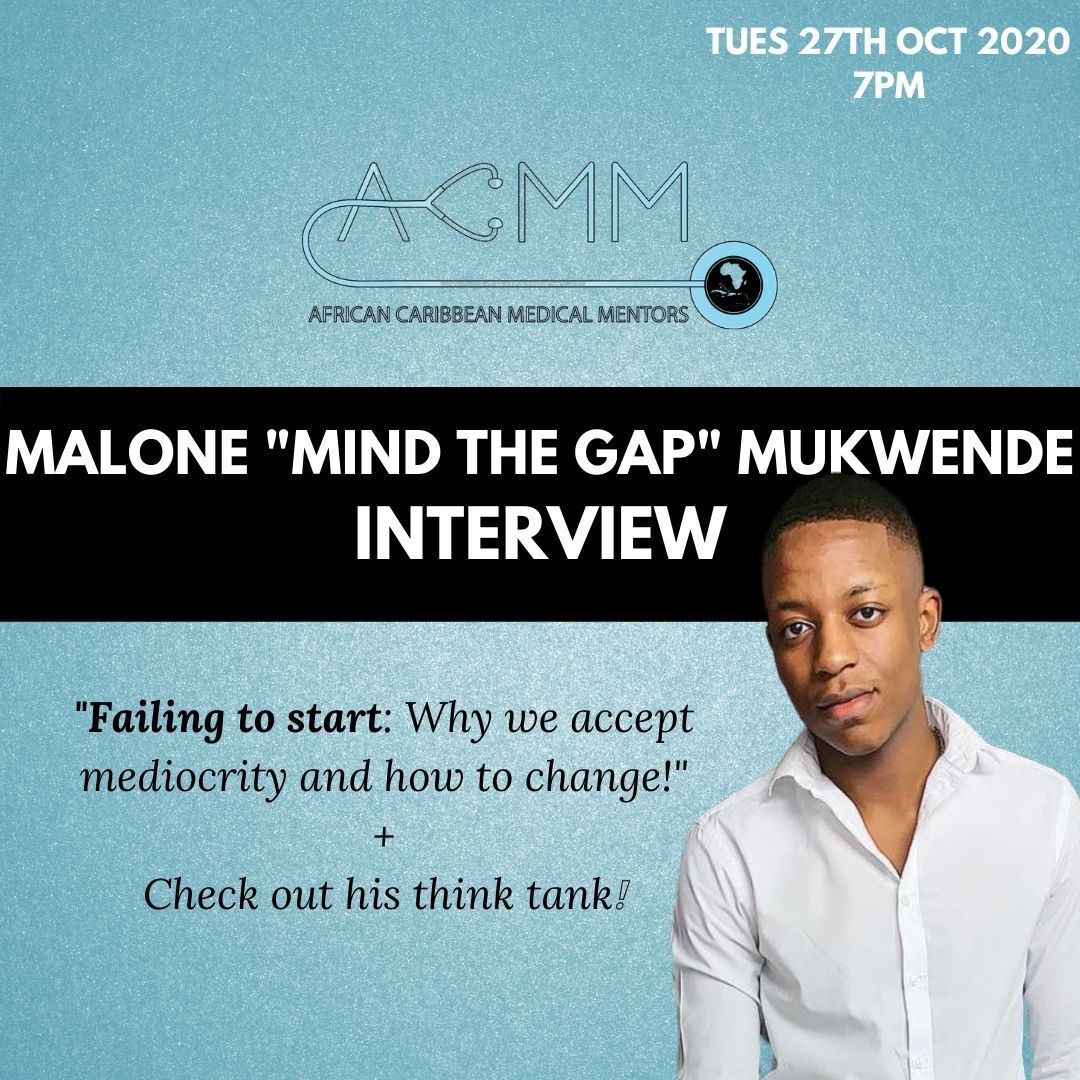
Hi, my name is Malone and I'm a third year medical student at St Georges University of London. I am one of the Co-authors of mind the gap which is a clinical Handbook of signs and symptoms in black and Brown skin. The summer has been quite hectic since I posted the work of Mind the gap on my Twitter page on the 18th of June 2020 as ‘Mind the Gap’ has been viewed over 100 million times with notable mentions from celebrities such as John Boyega, Lupita Nyonggo and Priyanka Chopra.
I noticed there was the issue at medical school on the lack of teaching in darker skins on arrival this was very concerning to me because I was almost unable to even spot signs and symptoms on myself. I knew that if I couldn't do this on myself then how am I expecting myself to be able to do this on others. With increased awareness on some of the healthcare disparities that exist in the UK such as black women being five times more likely to die during childbirth and black men more likely to be sectioned under the Mental Health Act it became apparent to me that something needed to be done.
I have spoken about ‘Mind the Gap’ on various platforms so I won’t repeat the same story again for this platform. Alternatively, I'm going to use this platform to speak about the impacts that it has had thus far on both myself and the world.
Over the past two months had featured in many news articles such as the Washington post, Sky News, ITV News, BMJ, and the CBC in Canada. This has led to a great amount of attention surrounding my name. Unfortunately, with this attention has come a lot of hate. Many people we’re unaware of the need for ‘Mind the Gap’ and it almost felt like I was creating unnecessary agendas and given the political climate of the world in 2020 many people felt entitled to try and stifle our attempts. Of course, everybody is entitled to their own opinion and thoughts however many would go out of their way to express their thoughts by sending hateful messages and emails. As a student who is just trying to do something positive this of course would get me down, however one thing that I knew is that change will always be met with resistance. It was clear to see that some people hating the fact that ‘Mind the Gap’ was having such a good impact.
Before the ‘Mind the Gap’ Handbook was released I could see a shift and a hyper awareness from the world that we need to do something about the lack of diversity in imagery. I could see that many news articles were now starting to include signs of how conditions present in COVID-19 on darker skin. This was extremely positive as I didn't believe that my co-authors and I could have such a big impact on the world.
My aim with this blog post is to illustrate how resistance is a by-product of change. I want to use this opportunity to help people acknowledge that sometimes your ideas won't always be met with open arms however don’t let that get you down. This message is for anybody who may have an idea but is almost holding themselves back due to fear of not being accepted. I think it's so important to have faith in your own work and then from there everything else will fall into place.
To keep up to date with mind the gap and associated posts please follow my social media. Instagram @malone_187, Twitter: @malone_mk
Catch us interviewing Malone on Tuesday 27th October at 7pm over on our instagram @acmedicalmentors

“Accomplishments have no colour.” - Leontyne Price
This statement says a lot in a few words - partially true in my opinion. For example, when we turn on lights or boil a hot cup of tea, we never sit down to think about the racial background of the respective inventor/creator. However, have you ever wondered what contributions our own black people have brought to the table? What about in the realm of medicine? We don’t learn much in school apart from how black people were oppressed. However, at notable times of the year such as Black History Month, we now have a chance to celebrate how far black people have come.

Where do I even start?
This journey was not an easy one AT ALL. It’s been a long and untraditional journey but nevertheless one of the most rewarding things I’ve ever done.
LESSON #1: Even When Things Are Going Great, Don’t Get Comfortable
In Year 11, I did 10 GCSE’s and managed to get: 4A’s 2A*, 3B’s and a C in Physics which to this dayyyy still baffles me, the subject just has me like
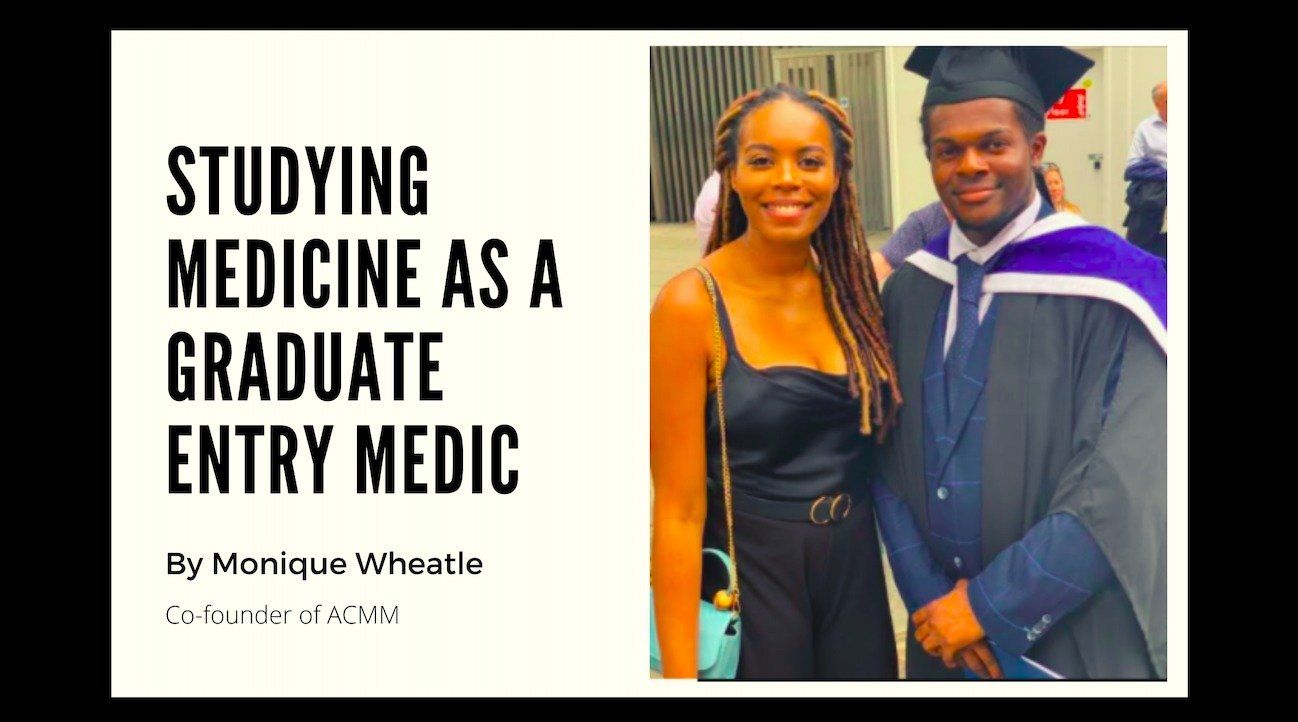
Medicine is all I have wanted to do since I was about 15. I never had a concrete reason why, but I would say I’m quite an intuitive person, and my spirit just took to medicine, it fit for me. I failed to secure an offer the first time round, so after achieving a first-class degree in Biomedical Science, I currently study Graduate Medicine at the University of Birmingham.
Studying medicine as a Graduate is rewarding, and for the most part very enjoyable. I can’t see myself doing anything else. However, it has brought certain challenges which I wanted to share in this post for anyone that can relate to this, whilst giving a realistic idea for those considering it.
Firstly, it is really intense, I will be studying consecutively for 7 years. Within that time, I have completed one degree, applied for Graduate Medicine (which is extremely competitive) and studied the entire 2-year preclinical course in less than a year. This is why it is so important to take breaks and be realistic with your workload to avoid burning out. I have multiple outlets which give me a breather and allow me to enjoy myself outside of medicine. I play netball, spend time with loved ones, run ACMM, attend every soca event possible and countdown to carnival every year. These things allow me to have a life outside of medicine which is crucial.
Also, the funding for the Graduate Entry Course is substantially different to the undergraduate course. For the first year, it requires a contribution of over three thousand pounds, and in subsequent years you get a combination of student finance and the NHS bursary which is usually less than your previous student finance loan. It is therefore common that there is a financial pressure on graduate students, which is why many have a year out prior to beginning the course in order to save. I had an offer straight from Biomedical Science so was not able to do this. Unfortunately, financial pressure is not uncommon amongst students in general, but it is an even more important consideration for Graduate Entry Medicine.
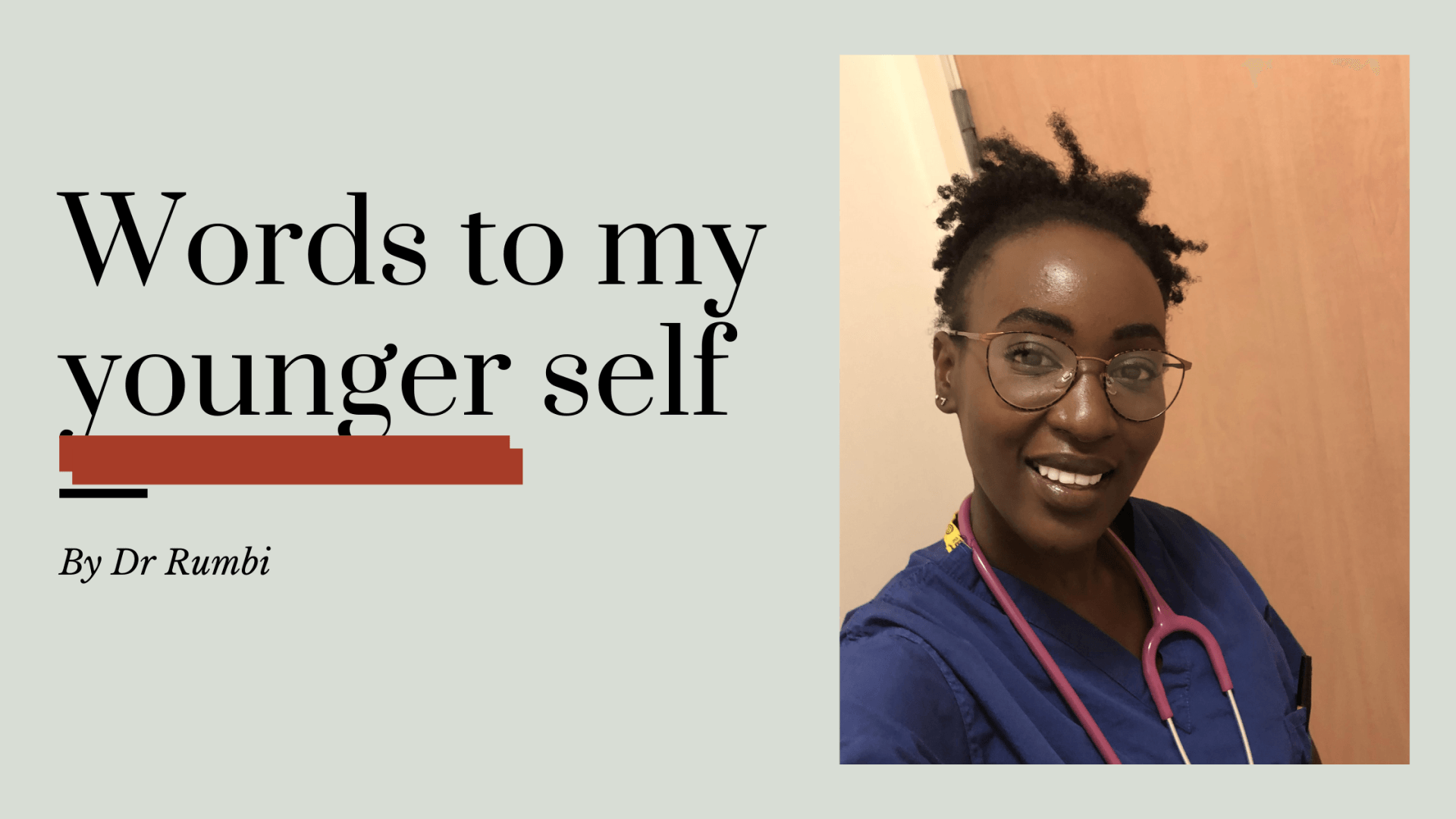
2020 has been a rollercoaster of a year. It feels like with each progressing month another level of Jumanji is reached. This year was one I had so many plans for, particularly this summer, the summer I was to graduate and finally become a doctor after 8 years of university. There were times in the previous years where I just wished I was finished; I wished I was graduating already. At times I envied those graduating whatever year it might have been.
As the saying (or the pussycat dolls song) goes, be careful what you wish for, because you just might get it. In April 2020, my wish came true. The circumstances however were those beyond what my mind could even imagine, a virus taking countless lives, keeping loved ones apart, sweeping the globe.
If you told me three months ago that today, as I’m writing this post, I would be in my first working week as an employed doctor? I would not have believed you. Three months ago I had only just written my finals, celebrated with travel, well, I came home to a different world than when I stepped on the plane to leave.
Class of Covid-19 as I like to affectionately call us, has been called up for duty. Who knew a global pandemic chose the year in which I was due to qualify to make its entrance into the world. I write this open letter to my younger, student, self and other medical students (both current and future) to say this.
Don’t wish away where you are now, because tomorrow might not be what you expect. Each season in life has its purpose. The times I cried because I didn’t get any offers to study medicine? Well they led to me finding joy in Midwifery. The days when I worried how I would pass my exams, study and find go to work; they led me to be resourceful and manage my time. Not everyone believes in fate, or in destiny but I believe all those times and moments where leading up to this season, starting as a doctor in the most extraordinary of circumstances. These days will be written about in the history books and we are living through them.
There is a lot of uncertainty for medical students and those that were planning to apply this coming September. There is restructuring of exams, cancelled placements, virtual lectures and other socially distanced changes. Take all the anxiety and worry that might come with the uncertainty and consider this an opportunity.
Take hope and comfort in where you are now, for it is preparing you for where you might be tomorrow. Don’t wish away the experiences you are having, embrace the hurdles because they train you to jump higher. I know it is easy for me to say because now I am at the other end of this journey but with every ending there is a new beginning, different challenges, more lessons.
More on early provisional registration of final year medical students and its impact on medical students
Covid-19: medical schools given powers to graduate final year students early to help NHS
Joint statement: early provisional registration for final year medical students
The Impact of COVID-19 on Medical Education

